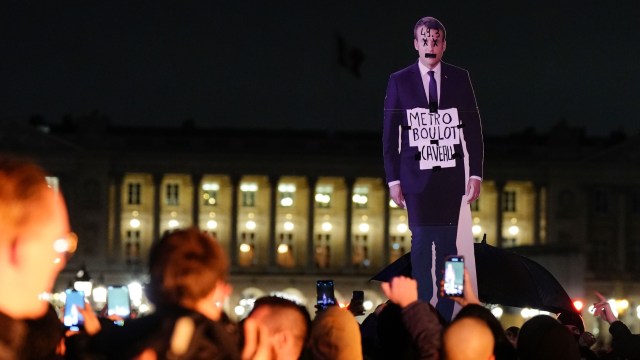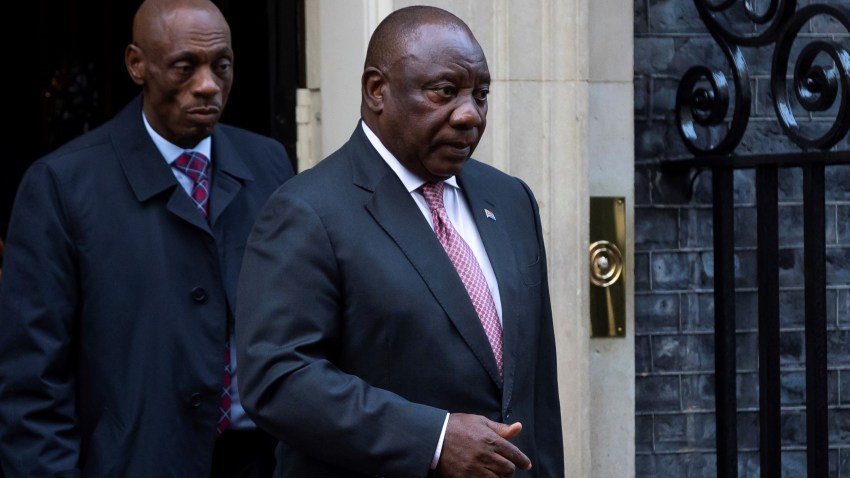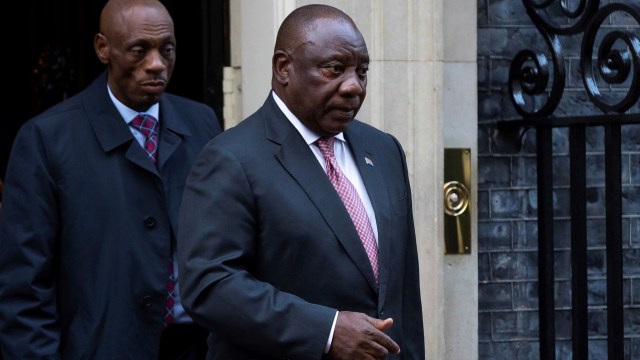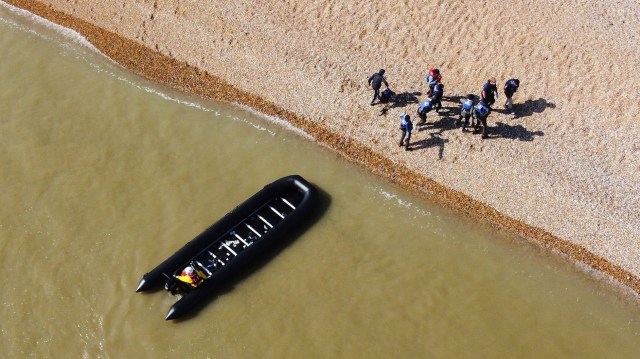Today at WPR, we’ve got stories on the cost of South Africa’s false neutrality on the war in Ukraine, Erdogan’s support among Turkish-Germans, and the problems with resettlement schemes for refugees and asylum-seekers.
First, though, here’s our take on today’s top stories:
Inflation: The OECD warned that efforts by central banks to control inflation by raising interest rates could “put the global financial system under severe stress and send share and bond prices tumbling,” the Guardian reports.
Our Take: One consequence of raising interest rates is that it makes borrowing more expensive for foreign governments, especially those in the Global South. Many of those countries were already facing high debt loads prior to the COVID-19 pandemic, which only increased due to pandemic-era borrowing. Many analysts think that a looming debt crisis has only been postponed, not solved, and the OECD seems to agree.
TL;DR? Containing inflation could come with collateral damage—in this case, global financial stability.
*****
Brazil: Former Brazilian President Jair Bolsonaro is scheduled to go on trial beginning June 22 on charges that he abused his power while in office by spreading false information about the country’s election systems. In the run-up to last year’s presidential election, Bolsonaro repeatedly questioned the country’s voting technology. (New York Times)
More context from WPR:
- James Bosworth’s warning before the election that Bolsonaro was setting the stage to claim fraud if he lost the election
- Frida Ghitis on how Brazil ‘Bolsonaro-proofed’ the election
*****
You can read the rest of today’s News Wire, a curated selection of one must-read article from every region, here.

Officially, South Africa has adopted a position of nonalignment regarding the war in Ukraine. As James Hamill explains, though, that policy doesn’t stand up to criticism and is coming at a cost when it comes to South Africa’s relations with the U.S.
South Africa’s False Neutrality on the Ukraine War Is Getting Costly
South Africa’s stance on the Russian invasion of Ukraine demonstrates that the country’s crisis of governance is not confined to the domestic scene. President Cyril Ramaphosa’s approach to the war has been afflicted by the same blend of ineffectual leadership and ideological grandstanding that characterizes his domestic performance.
Columnist Alexander Clarkson argues that conservative parties in Germany should spend less time attacking the left for being too lax on migrant communities, and more time appealing to the Turkish diaspora in the country:
Erdogan’s Victory Has Implications for Germany’s Domestic Politics
In his election victory last month, Turkish President Erdogan won an overwhelming majority among Turkish-German diaspora voters. That support, and the reaction to it among German media and political parties, highlights the growing role that Turkish-Germans and Kurdish-Germans have begun to play in German domestic politics.
Plus: An in-depth look at the growing trend in the Global North of prioritizing resettlement schemes over accepting asylum-seekers who arrive at the border. Matthew J. Gibney argues that there’s a better way to handle the issue:
Instead of Resettlement Schemes, Make Migration Easier
The U.K. is the latest country in the Global North to prioritize resettlement schemes over accepting asylum-seekers who arrive at the border. In many ways, these approaches seem to criminalize vulnerable people. States can and should deal with the rising number of asylum-seekers making risky voyages in a more humane way.

We want to hear your take on the issues we cover.
Today’s question: U.S. Secretary of State Antony Blinken will reportedly visit China later this month, amid a flurry of high-level contact between the two sides in recent weeks. Should the U.S. be seeking to unconditionally engage with China, or should it seek concessions from Beijing ahead of any dialogue?
Just reply to this email to give us your take, along with your name and where you’re based. We’ll include the best ones we receive in the Daily Review over the course of the week. Those selected will also receive a free month of WPR.

French protesters took to the streets Tuesday to once again demonstrate against a widely unpopular pension reform pushed through by President Emmanuel Macron. While the protest was considered by many to be a last-ditch effort, it’s also clear that Macron will face lingering anger and resentment as a result of the reform.

A Defiant Macron Finds Himself Perfectly Alone
March 24, 2023 | After his reelection in April 2022, French President Emmanuel Macron promised to pursue consensus to advance his agenda. Less than a year later, however, millions of protesters have paralyzed the country, after Macron forced through a pension reform over widespread popular opposition and a lack of votes in parliament. Read more.
*****
The U.S., Philippines and Japan are holding an inaugural trilateral coast guard exercise this week, amid growing unease about China’s assertiveness in the region. Following the election of Philippine President Ferdinand Marcos Jr. last year, the three countries have strengthened their security ties in an effort to counter China.
For more context, here are stories from Richard Javad Heydarian on how Marcos is shoring up the country’s alliance with the U.S. and how Japan has become an important regional security power.
That’s a wrap on today’s Daily Review. Coming up later this week: China’s expanding ties in Central Asia and the EU’s cryptocurrency regulation plans.
Have a great day,
Jakob Cansler
More from WPR
- Arif Rafiq on Imran Khan’s standoff with Pakistan’s military.
- Charli Carpenter on a dangerous new armed group in Haiti.
- Helen Morgan on Sanchez’s snap election gamble in Spain.
- James Bosworth’s column on Lula’s regional currency plans.
Jakob Cansler is WPR’s assistant editor and the author of the Cansler Culture newsletter.




